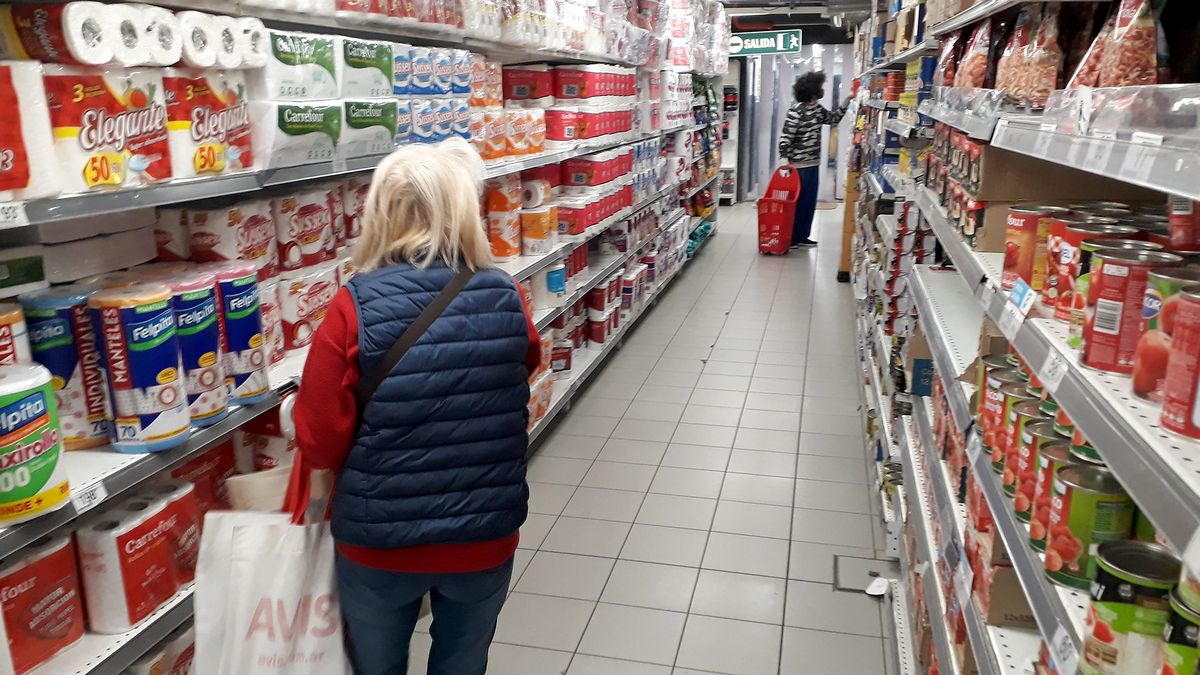The food companies affirm that the term to adapt is “short”, due to the changes in the packaging, the remainder that remains unsold in the domestic market with the previous label and the difficulties in exporting to other countries. The regulation of the law, published in March, establishes that the large food companies have 9 months to readjust, but since the sanction of the law, in October of last year, so it has to arrive by July in a first stage.
While they claim for the deadlines, they are also looking for another change: to modify the labels. It is that products that exceed a certain characteristic threshold will have to have the black octagon. The complaint is that exceeding that threshold by a little or a lot “makes it seem the same to the consumer, and creates less incentive to try to have an increasingly healthier product,” private sector sources said.
The industry transferred the issue to the Minister of Science and Technology, Daniel Filmus, during his visit this week to the Buenos Aires headquarters of the Argentine Industrial Union (UIA). According to sources from the business sector present, Filmus promised them that there will be financing with low-rate credits so that they can reconvert products or launch new, healthier items. “As much as they give us a credit, research and development formulas take time, they are not made from one day to the next,” complained from a multinational.
The labeling law provides that products contain information with labels that warn about “excess sugars”, “excess sodium”, “excess saturated fats”, “excess total fats” or “excess calories”. In a first stage, large companies will have 9 months to add the seals, and SMEs 15. But later, new products will have to be added due to the conditions established by the regulations, and for that the terms will be between 18 and 24 months. depending on the size of the companies.
Although for now many of the companies consulted by this newspaper do not foresee strong impacts on consumption, they are closely following the greater interest of consumers in healthy products. According to the consulting firm ShopApp, 75% of buyers would analyze changes if they find between 1 and 3 seals, and the impact will be greater if they considered that the product was healthy.
upcoming negotiations
The biggest annoyance with the Secretary of Internal Trade, headed by Roberto Feletti, is due to the authorized increases for Care Prices, of 3% per month on average, far from what they claim are “double-digit cost increases.” Yesterday the renewal of Care Prices was launched in supermarkets, with 400 new products, so there are already more than 1,700 that are regulated in the gondolas. On Monday, 60 items in the basket will have to be in local stores, and also from next week, supermarkets will have to comply with the inclusion of fruits and vegetables in the Care Prices basket.
Going forward, beyond the labeling law, already sanctioned by Congress in 2021, they will seek to avoid another measure: the bill that is in congress on the so-called “container law.” For the food industry, it adds a new cost to production, while social organizations support it, considering that it can help a hit sector such as the popular economy.
Source: Ambito
David William is a talented author who has made a name for himself in the world of writing. He is a professional author who writes on a wide range of topics, from general interest to opinion news. David is currently working as a writer at 24 hours worlds where he brings his unique perspective and in-depth research to his articles, making them both informative and engaging.




